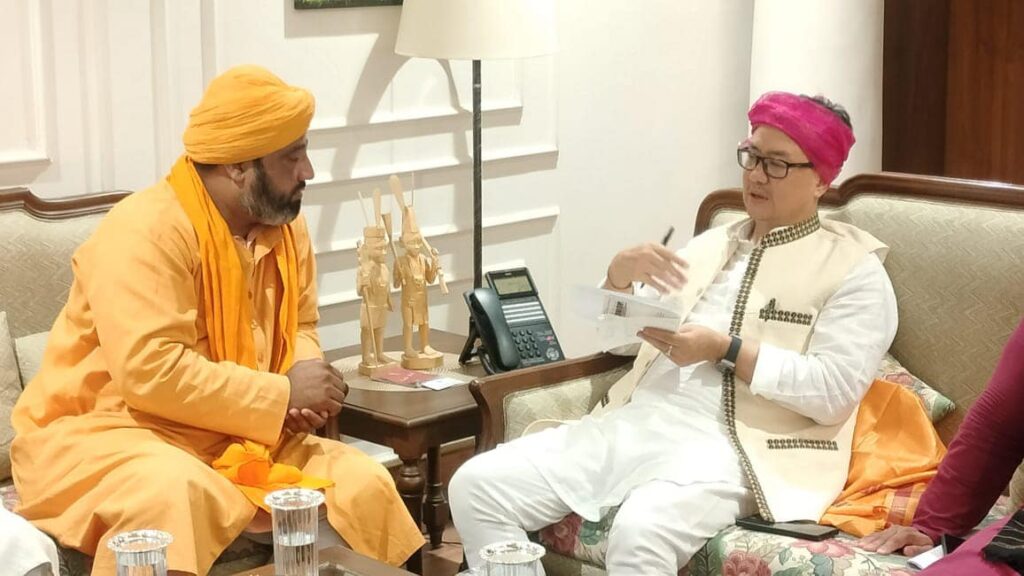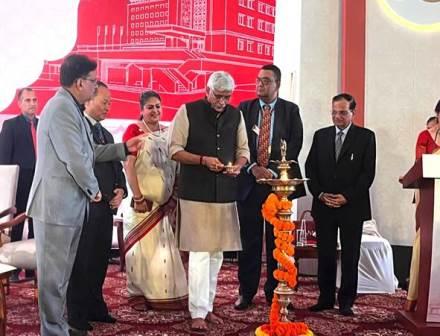New Delhi. August 06
Parliamentary Affairs Minister Kiren Rijiju met with a delegation from the All India Sufi Sajjadanashin Council (AISSC), which included prominent Sajjadanashins from various Dargahs nationwide.
The meeting, held on Monday evening, was led by Syed Naseruddin Chishty, Chairman and successor to the current spiritual head of Ajmer Dargah. The discussion covered a broad range of key issues affecting the Muslim community.
Rijiju shared on social media, “Last evening, a delegation of the All India Sufi Sajjadanashin Council (AISSC), comprising the most revered and prominent Sajjadanashins from various Dargahs across India, met me under the leadership of Shri Syed Naseruddin Chishty, Chairman and successor to the present spiritual head of Ajmer Dargah, to discuss a range of important issues concerning the Muslim community. It was a fruitful and forward-looking discussion.”
The delegation praised Prime Minister Narendra Modi’s efforts toward the welfare of the entire community and minorities in general. They also pledged their commitment to the Sankalp of Viksit Bharat 2047.
Notably, BJP national spokesperson Shehzad Poonawalla was also present during the meeting. Rijiju highlighted ongoing demands from poor and ordinary Muslim women for more transparent, efficient, and beneficial management of Waqf properties for the Muslim community.
Top government sources indicated that a bill addressing these concerns is likely to be presented after the passage of the Finance Bill, expected this week. Before drafting the amendments, the government consulted various Muslim intellectuals and organizations to ensure comprehensive reforms.
One key proposed amendment is the mandatory registration of Waqf properties with the District Collector’s office, allowing for proper evaluation and monitoring. Additionally, the amendments aim to enhance inclusivity by ensuring women’s representation on both the Central Waqf Council and state Waqf boards.











